First announced back at the Game Awards 2020, The Callisto Protocol is finally here. Led by Glen Schofield, one of the creators of the original Dead Space, developer Striking Distance Studios has drawn heavily on that franchise in creating this new experience.
The result is a survival-horror game that pulls more than a fair bit of inspiration from its spiritual predecessor, while still managing to set itself apart in a couple of interesting ways. The story isn’t the most original, but it hits multiple science-fiction hallmarks and does answer a few questions players will have throughout the experience, while still setting things up for the future with larger mysteries.
A couple of performance and checkpoint issues aside, this is a fantastic game that pays homage to what came before and opens the genre up in a couple of new, exciting ways. If you are a fan of survival-horror and science-fiction titles, this is one of the best games of the year.
Disclaimer: This review was made possible by a review code provided by Krafton. The company did not see the contents of this review before publishing.
The Callisto Protocol: Story and characters
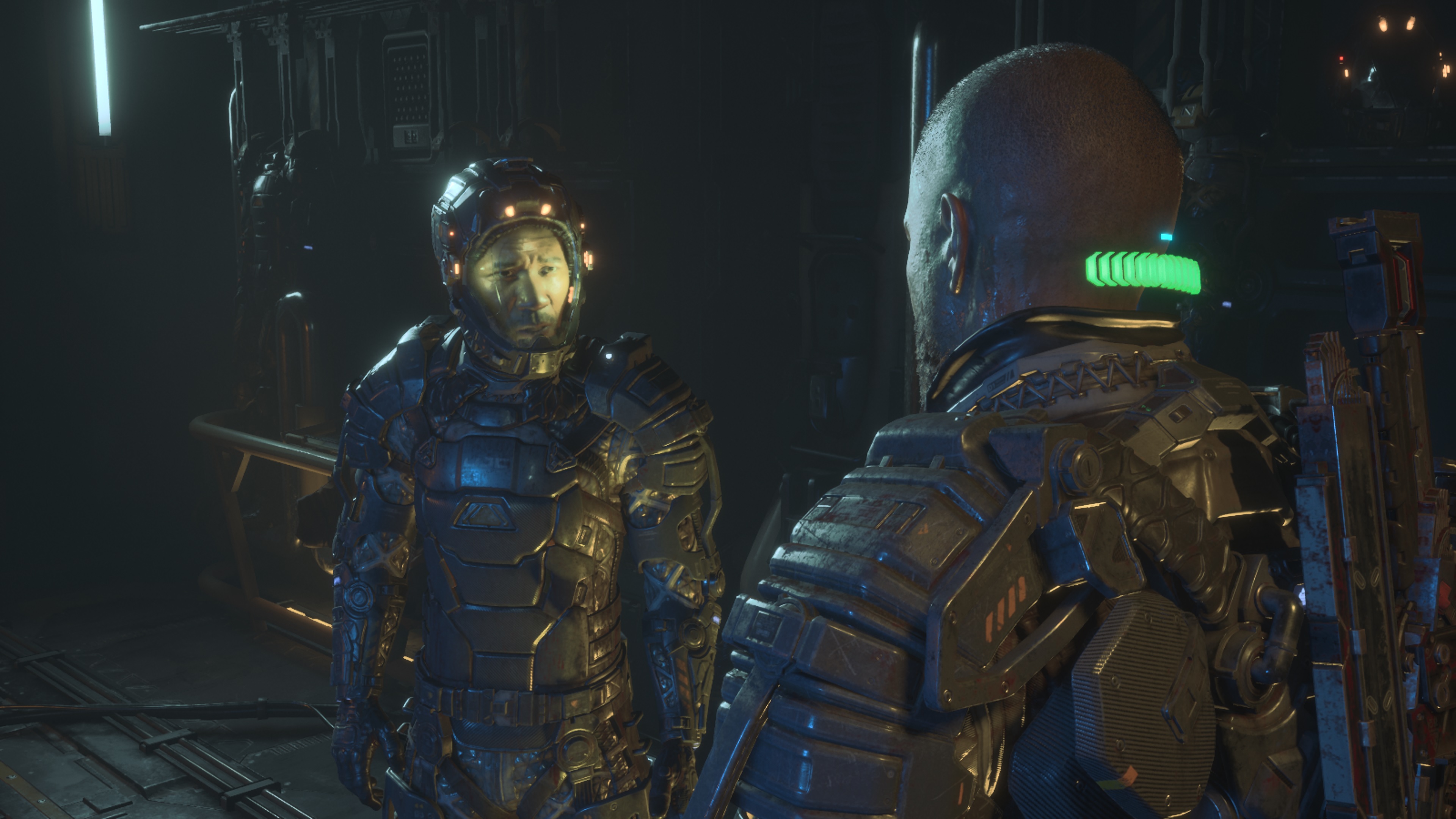
The Callisto Protocol is centered around protagonist Jacob Lee, as performed by actor Josh Duhamel. Working as a freelance cargo transport pilot for the United Jupiter Company, a series of unfortunate events see Jacob crash-land on the moon of Callisto and imprisoned in Black Iron Prison.
This sudden imprisonment is bad enough, but things take a turn for the worse when a mysterious infection begins spreading across the prison, transforming the guards and inmates into monstrous creatures. On top of all that, Jacob is being targeted by a mysterious woman named Dani Nakamura who is accused of leading a terrorist cell, and is performed by actress Karen Fukuhara.
| Developer | Striking Distance Studios |
| Publisher | Krafton |
| Genre | Survival-horror |
| Install size | 44.5GB |
| Players | Single-player |
| Playtime | 11-12 hours |
| Release date | Dec. 2, 2022 |
| Platforms | Xbox Series X|S, PS5, Xbox One, PS4, PC |
| Xbox/PC Game Pass | No |
| Price | $70 on Xbox Series X|S, PS5 ($60 on Xbox One, PS4, PC) |
| Reviewed on | Xbox Series X |
The story has a few twists and turns, and while none of it will be too shocking to anyone well-versed in science fiction, the game does offer a few answers as to just what is going on across the station, while still teasing out greater mysteries for a possible sequel. Jacob works as an everyman protagonist in the same vein as Isaac Clarke, and there’s more to Dani than meets the eye.
The performance capture here is top-notch, and the quality of these performances help to keep things engaging even when the story itself isn’t doling out major reveals. That makes the many, many, ways you can be killed even more gruesome and uncomfortable, even if you’re a jaded horror veteran like I am.
The Callisto Protocol: Gameplay and customization
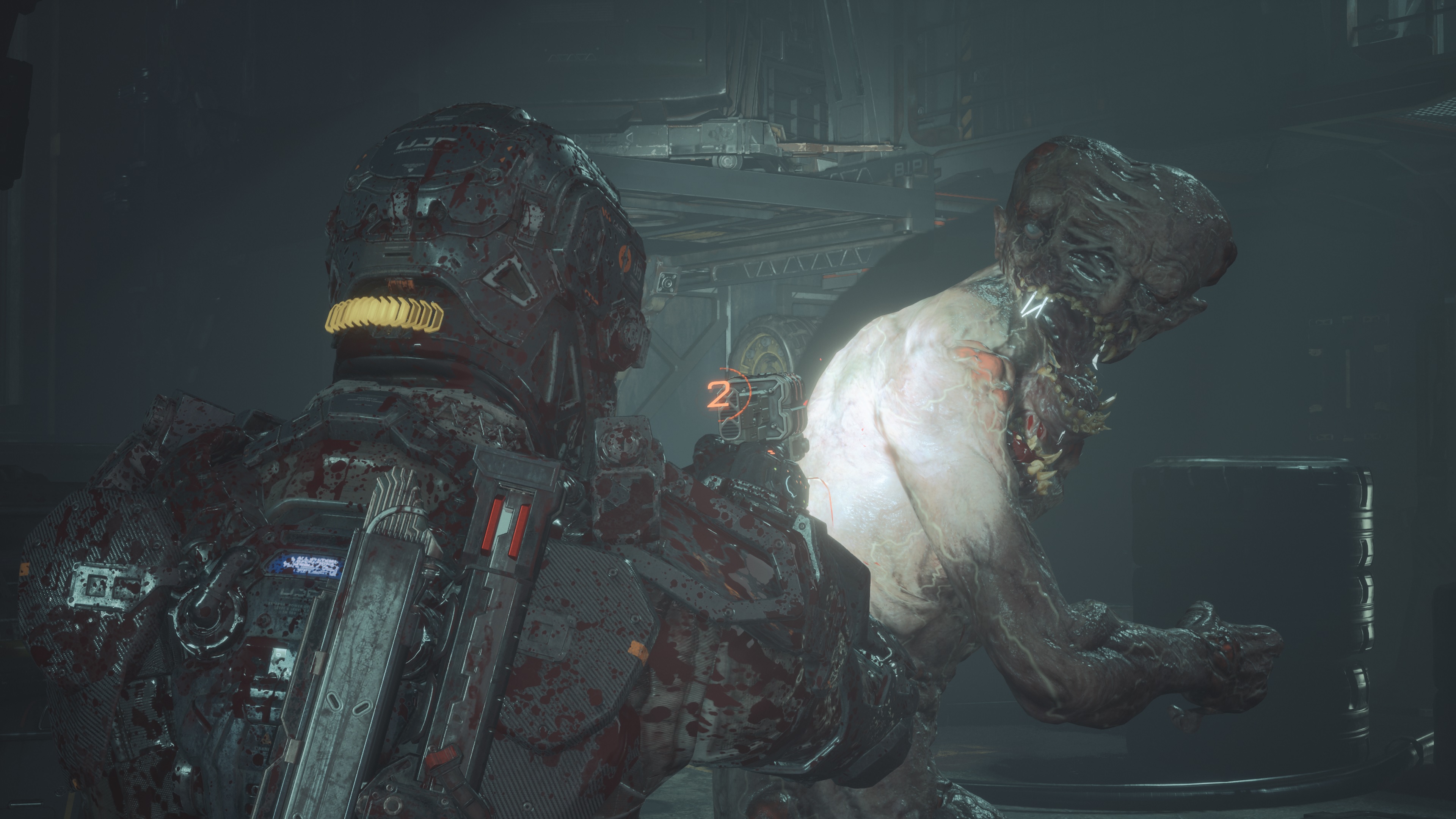
As a third-person survival-horror game, it’s easy to immediately draw comparisons to other titles like some of the Resident Evil remakes or Dead Space and there are certainly similarities, especially to the latter. The Callisto Protocol uses an immersive HUD, with the player’s information like health and ammo count displayed in holographic form along Jacob’s neck and guns.
One of the biggest differences found here is in the melee system. As opposed to the while in many horror games a melee attack is merely meant to provide a bit of breathing room, here, it’s the main way Jacob will stay alive. Whenever players are attacked at close range by one of the mutants lurking on Callisto, they automatically enter a new movement system that is focused around dodging.
It takes a fair bit of time to get used to, but once you’ve got it down, it becomes possible to dodge and weave attacks from multiple creatures at once, finding openings to unleash melee combos with an electrified stun baton, and exposing critical weak points on the creatures that can be shot for extra damage. It’s an innovative system, one that works better than it would seem on paper.
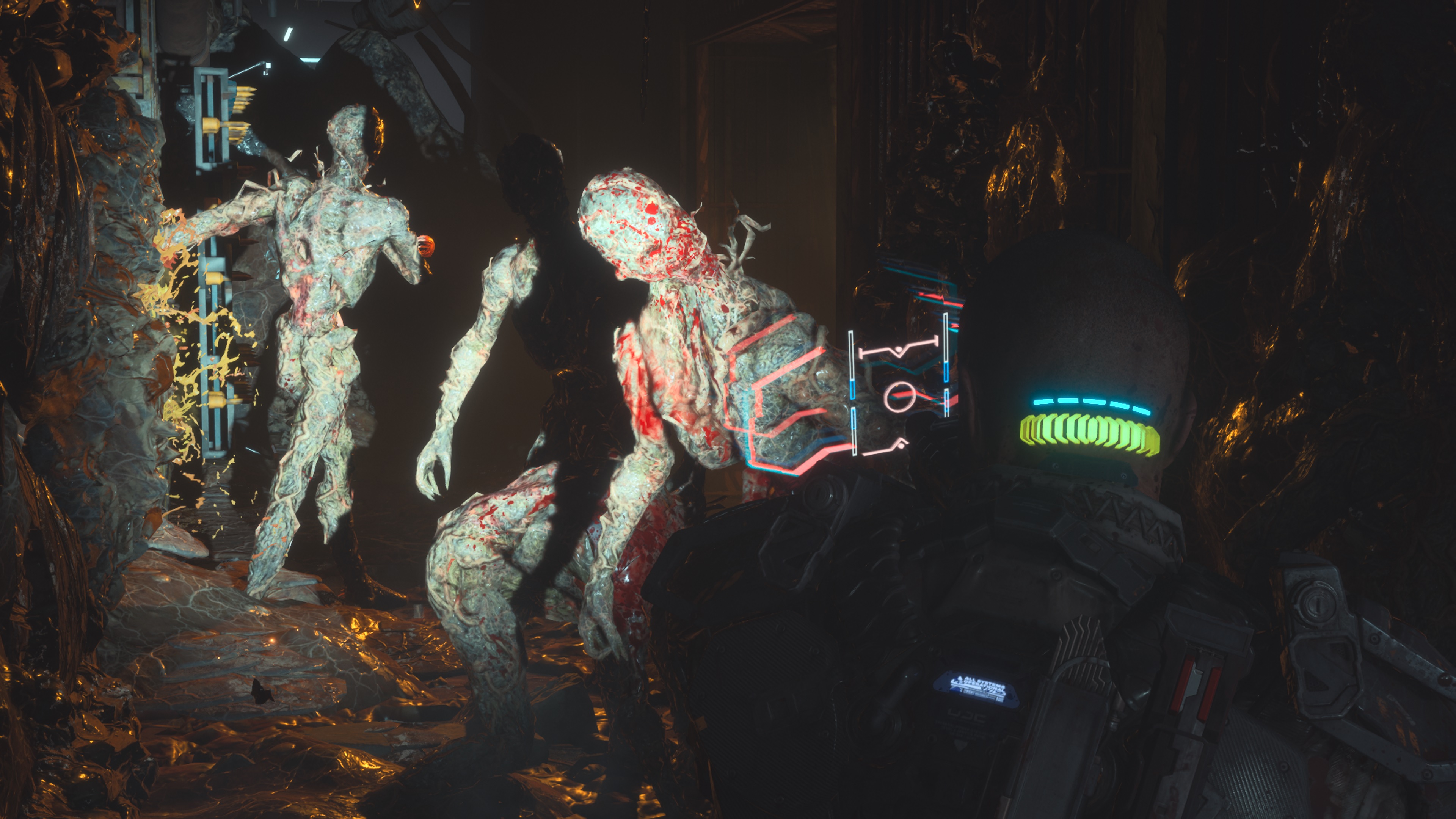
You’ll also be getting a telekinesis device called the GRP. Using the GRP, you can fling objects and enemies around the room. The battery doesn’t last long, but grabbing an enemy and putting them between you and a spray of acid from another Biophage can be the different between life and death, and it works to supplement combat strategies as an additional tool in your arsenal.
That is important, because there’s a wide variety of monstrosities lurking across the prison and its surrounding frozen wastes. Hulking mutations hide in vents and around every corner. Even opening a locker or supply chest isn’t safe, with tinier creatures waiting to ambush you the moment you think you’ll be restocking your ammo. It’s not such a frequent occurrence as to become frustrating, but it happens just often enough to keep you always on guard.
The Callisto Protocol is a fairly linear game, constantly funneling you forward in cramped conditions — later chapters do open up a small amount, adding variety to the gameplay as well as the art direction — but you’re still allowed to explore. Frequently, you can discover side passages to explore, with audio logs that shed more light on the disaster, additional supplies, and even earlier unlocks for particular weapons, though this comes with the threat of encountering additional monsters or finding too much to carry in your inventory.
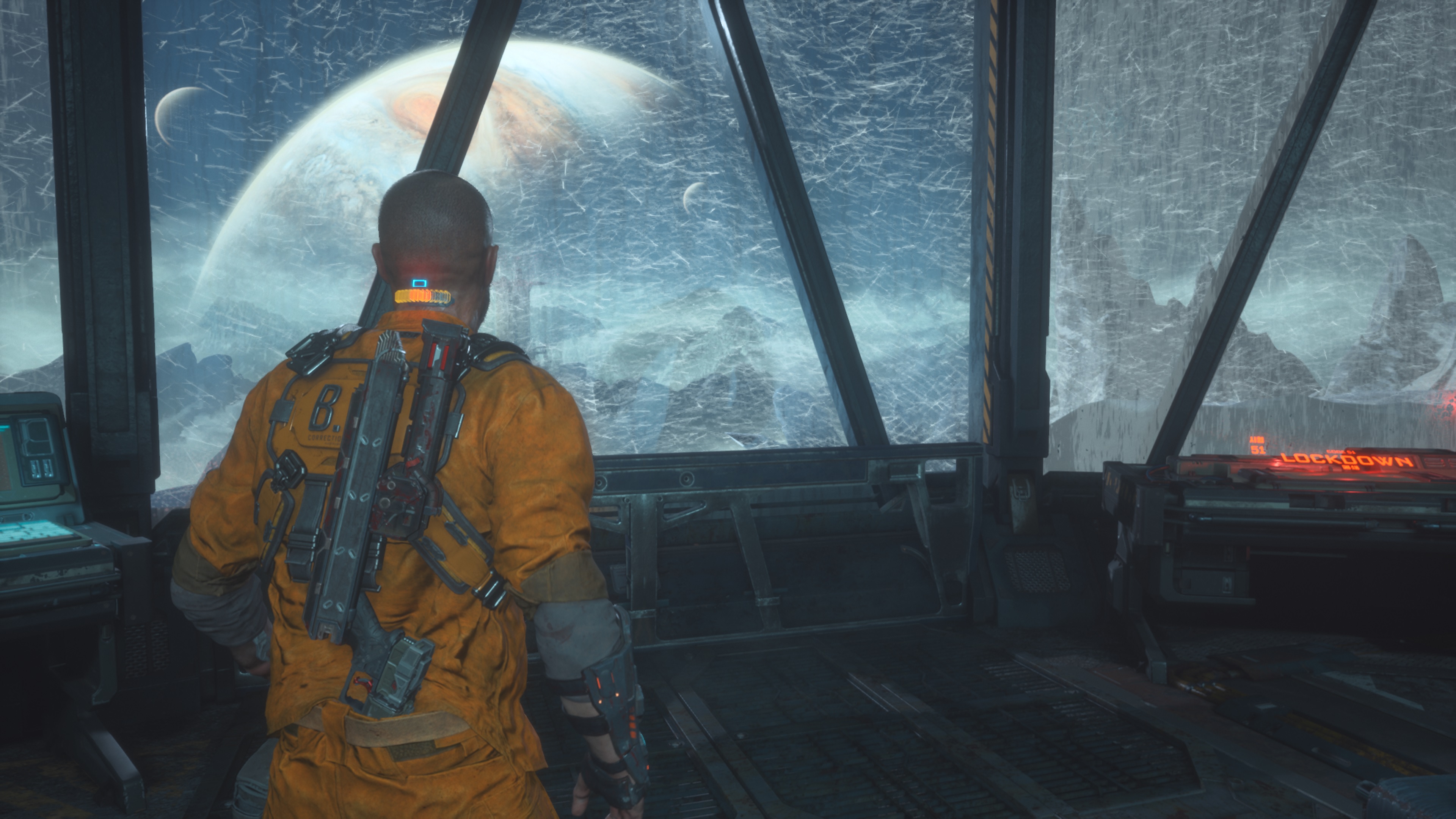
As you explore, you’ll find Callisto Credits, which are used to purchase upgrades for your weapons and GRP. You’ll also discover a variety of things that can be sold for Credits, but this is a risk, as early on your inventory space is extremely limited. While it is later expanded, the danger of filling up that space never really goes away. I had to plan meticulously to survive, and even then, more than once that meant leaving behind a health injector or a valuable item in order to move on.
One small issue worth mentioning is how The Callisto Protocol handles saving your game. If you opt to go off to the side and explore, you sometimes don’t get a checkpoint after you return to the main path, meaning you’re in danger of losing more than a few minutes of progress if you die. Losing progress is part of many survival-horror games, but the issue that arises is in how you can’t create manual saves. Instead, it saves data based on your most recent checkpoint, which can make the situation frustrating when there are multiple difficult fights in rapid succession.
I also ran into a one-time issue where I fell through the world and upon loading the latest checkpoint, found myself back towards the start of the game. Striking Distance PR says that one of the patches rolled out during the review period fixes this issue, and I haven’t been able to recreate it since, so this hopefully shouldn’t be an issue for most players.
The Callisto Protocol: Visuals and audio
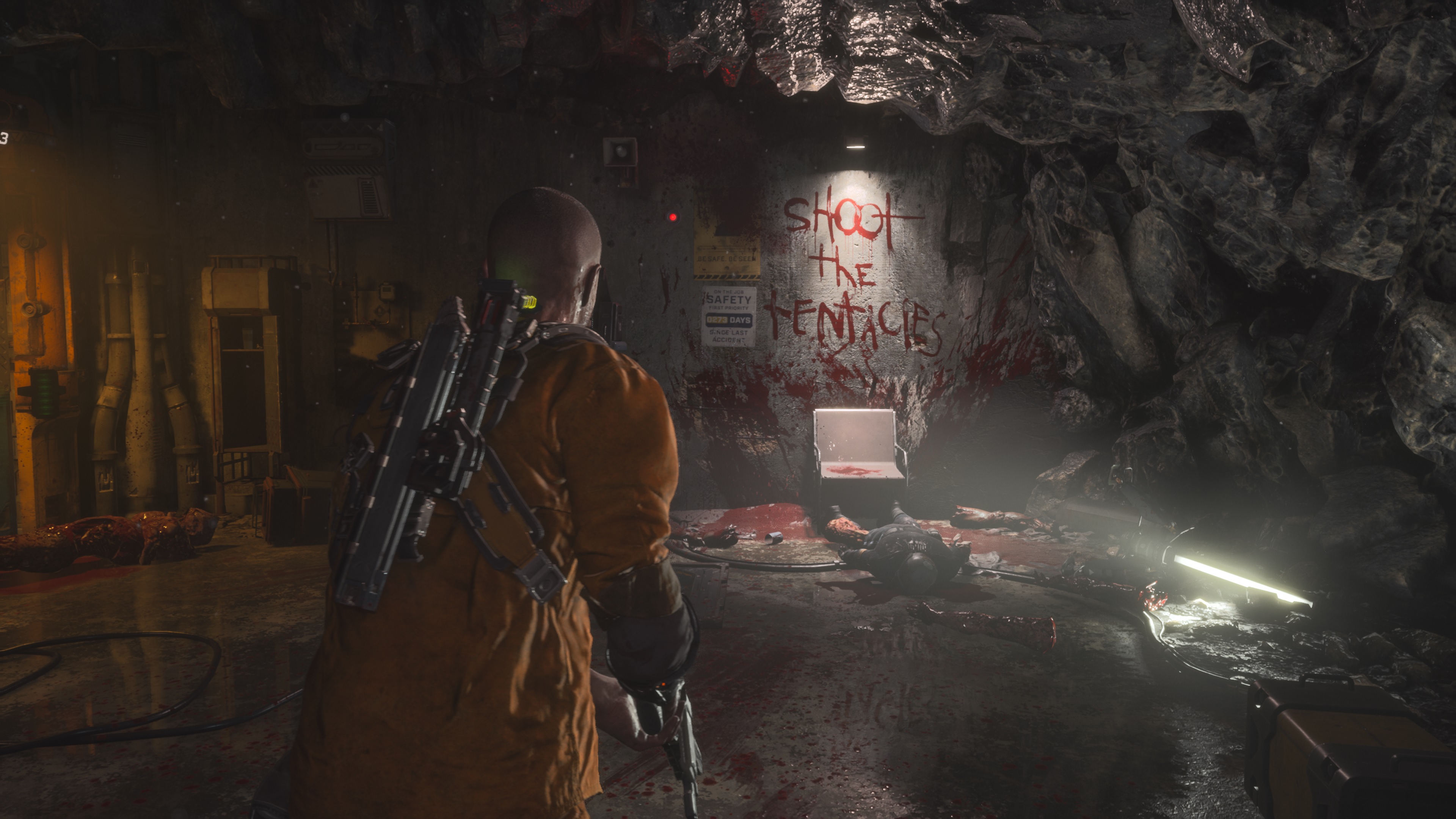
Straight away, The Callisto Protocol is a good-looking game. The dark science-fiction tone means you’ll be seeing a lot of cramped hallways, prison cells, and darkened rooms, but all of it is rendered in great detail. Character models look particularly good, with Jacob constantly covered in sweat, grime, and the blood of dead Biophages.
Obviously, you’re not getting a massive amount of variety in scenery, but the aesthetic of what is here is simply sublime. One of the sections later on has you exploring outside of the prison walls, with ice and snow piled high under a dark, stormy sky. It’s stunning, selling the isolation and hopelessness of this “dead moon.”
This visual detail extends to the combat. Swinging a melee weapons tears chunks of flesh and skin with every blow, while shots from handguns, shotguns, and rifles blast off half of a monster’s head, or remove limbs entirely. This also applies to Jacob, who can be horrifyingly torn apart and smashed to pieces in a number of ways.
The Callisto Protocol offers a visuals-focused mode and a 60 FPS mode. I chose to play in the Performance mode on Xbox Series X, and most of the game felt smooth, with no major stuttering or hitches for the vast majority of the experience.
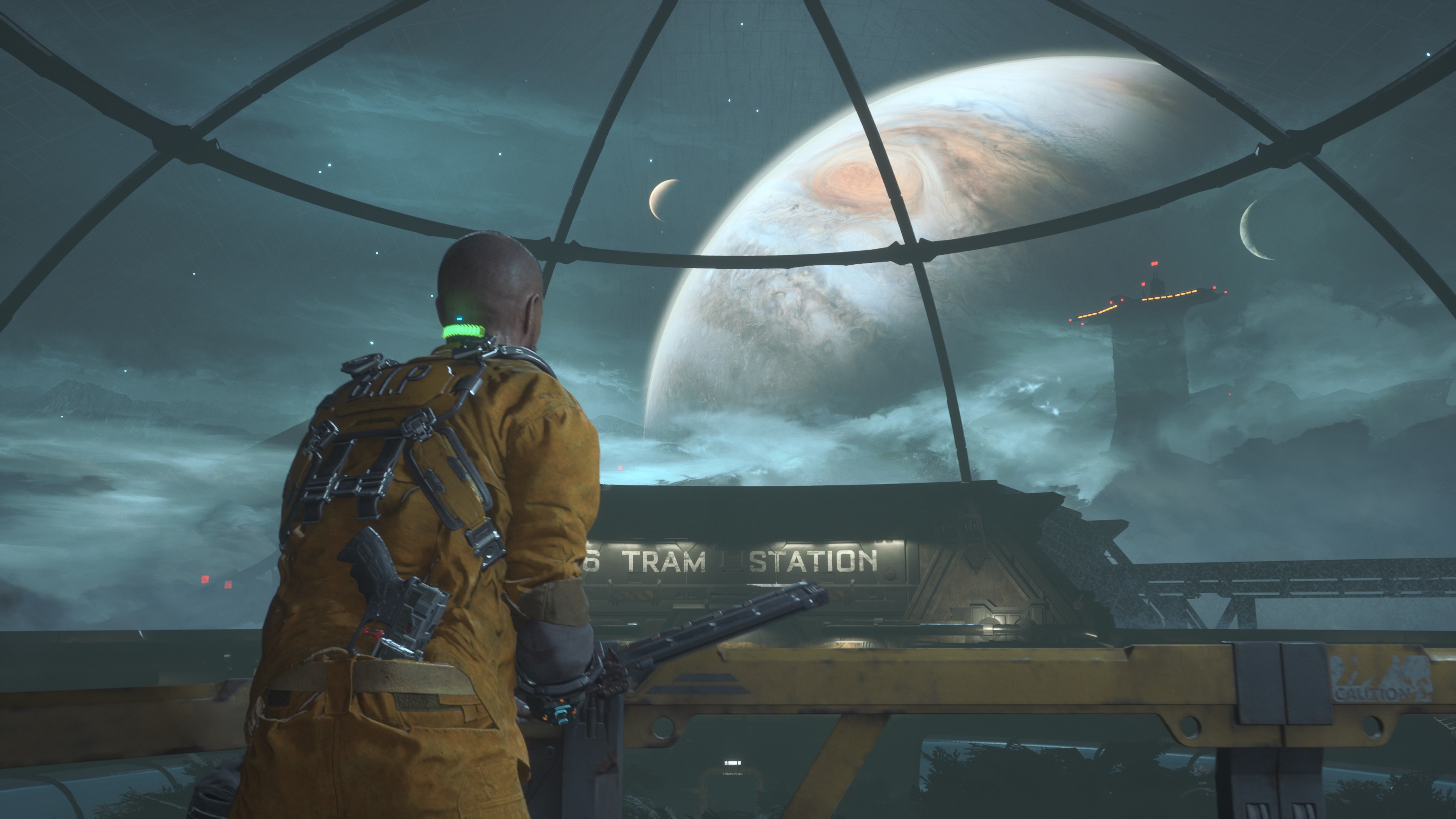
I said “vast majority” because I did run into some problems for one very brief section, around the two-thirds mark. In this area, I experienced massive framerate problems for about five or six minutes, with the game slowing down and chugging. It was only a tiny portion of the experience, but the severity makes it worth noting.
Striking Distance PR indicates that a day one patch will be live by the time this review is up, and in combination with prior patches that were rolled out, this issue should be mostly fixed.
The audio design is also fairly strong, with the howling wind, creaking machinery and gurgling of monsters constantly making it seem like there’s some threat inbound. As some of the Biophages hide in the ventilation shafts to try and ambush you, it’s even possible to track these creatures by listening carefully, though that does mean standing still in a dangerous environment. In combat, bones snap and flesh tears with disgusting accuracy.
The soundtrack, composed by Brian Trifon and Brian Lee white, is noticeably more energetic than the tracks in many horror games, underscoring the fast-paced action.
The Callisto Protocol: Accessibility and approachability
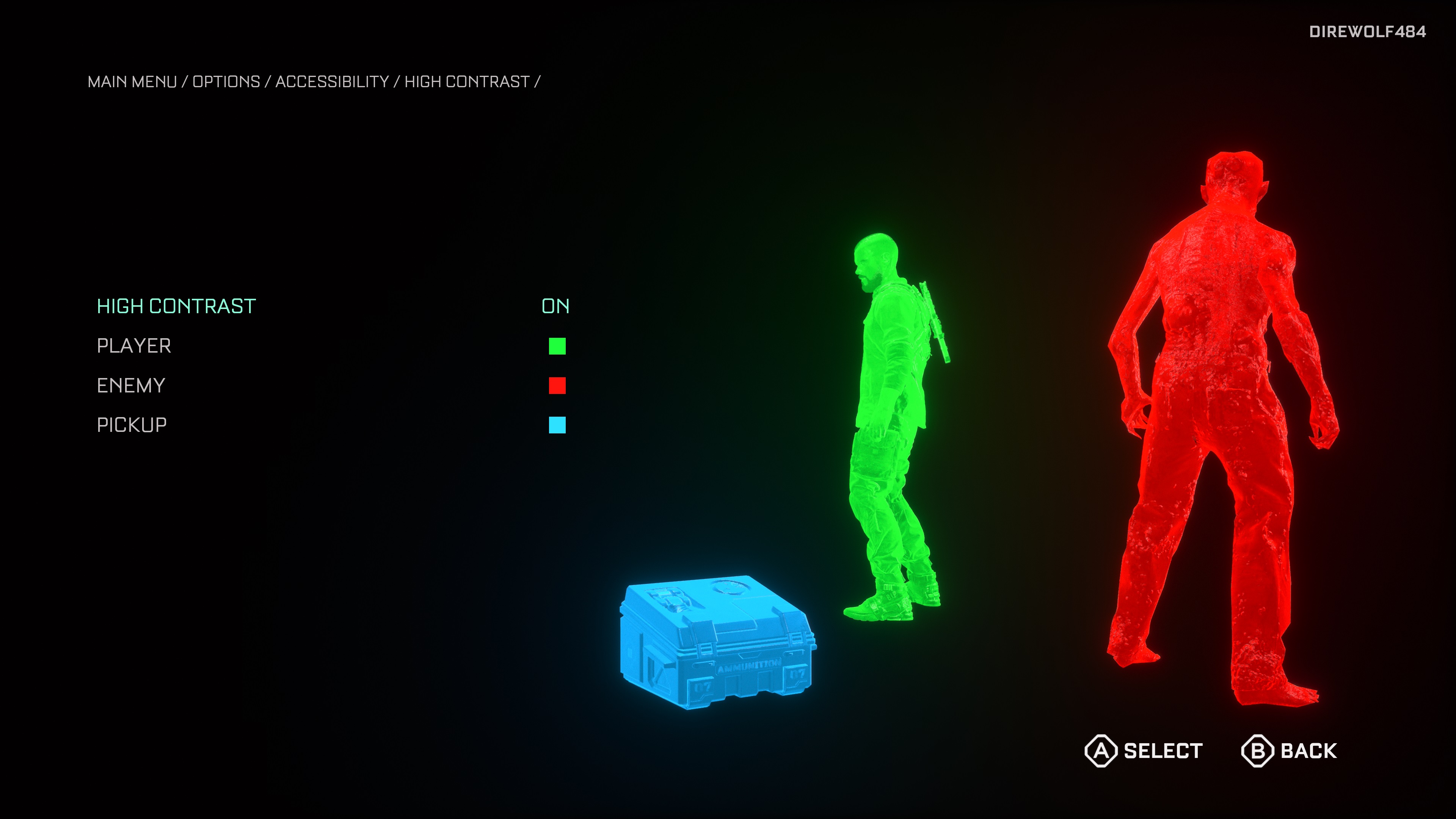
The Callisto Protocol offers a few key accessibility options for any players. These include a high contrast mode to set apart the main character, pickups, and enemies, as well as a variety of other tweaks such as being able to reduce screen shake, the option to just hold down a button instead of mashing it for quick-time events, a toggle for automatic dodging, or holding down the trigger to automatically continue using melee attacks.
It’s not quite the most extensive list of options ever seen in a game, but it’s well above what’s been found in most survival-horror titles before now. This variety of options should make the game more enjoyable for anyone that needs them, as well as making it less off-putting for anyone excited about playing a survival-horror game but concerned about the manual challenges.
Outside of these accessibility options, there’s three difficulty settings to choose from. I played on the medium setting, and personally found it to be the right balance of providing a challenge while not being too frustrating.
The Callisto Protocol: Should you play it?
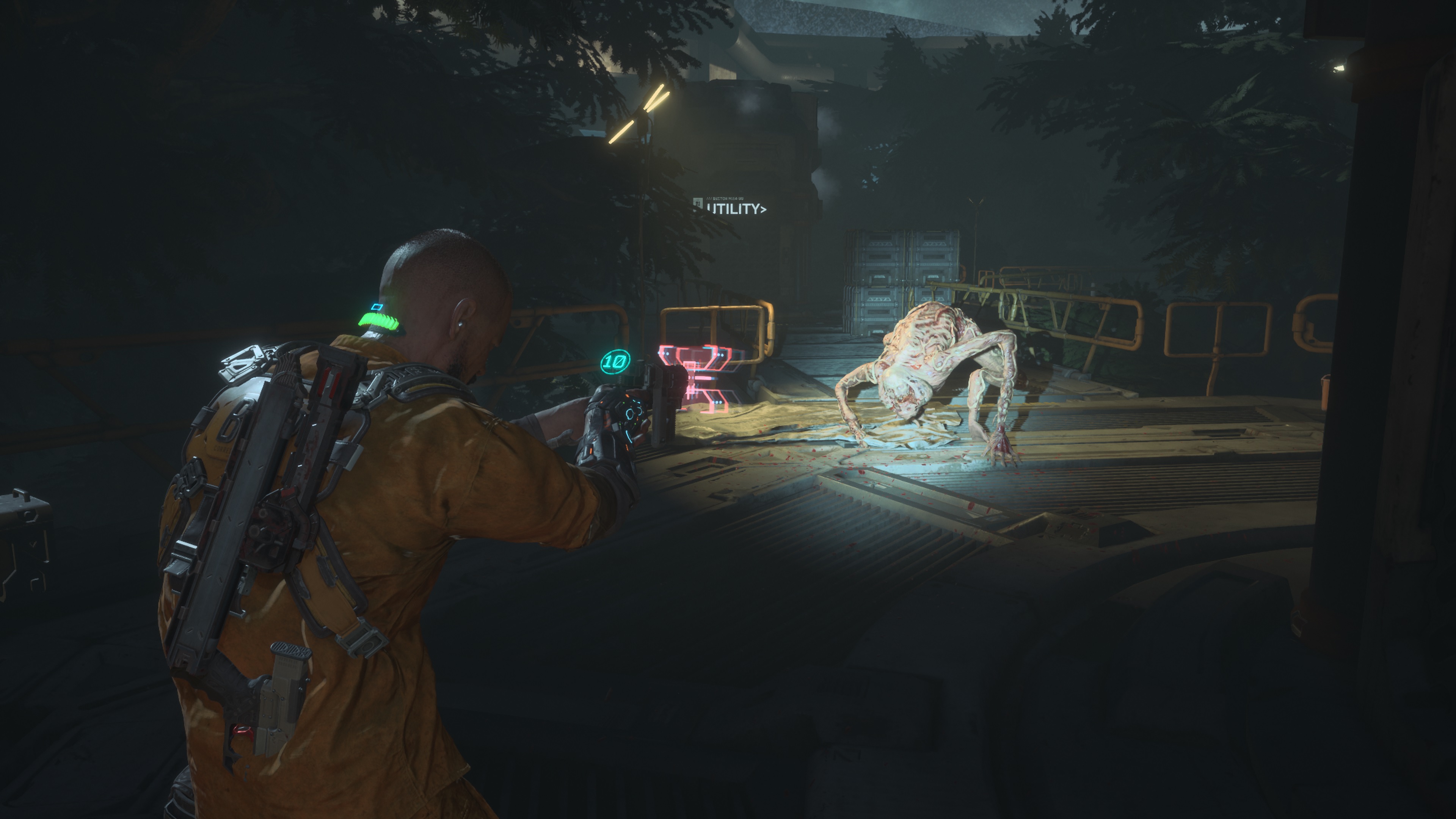
All things told, The Callisto Protocol is an excellent new experience. The dark aesthetic, detailed visuals, and brutal gameplay easily cement this as one of the best horror games available right now. The similarities to Dead Space are strong at the surface level, but there’s plenty of differences here that help set this apart as the start to a compelling new franchise.
The story may not blow anyone away, but sticking to tried-and-true tropes isn’t always a bad thing, especially when they are executed with near-perfection, and that’s the case here. If you don’t usually play horror games, then nothing here is going to change your mind. Fans of high-budget survival-horror, however, are in for a great ride.
Looking ahead, The Callisto Protocol will getting a season pass, with DLC including new story content, death animations, and a Horde-type mode. Time will tell if that extra content is worth your money, but the base game absolutely is.
The Callisto Protocol is now available on Xbox Series X, Xbox Series S, Xbox One, PC, PS5, and PS4.




